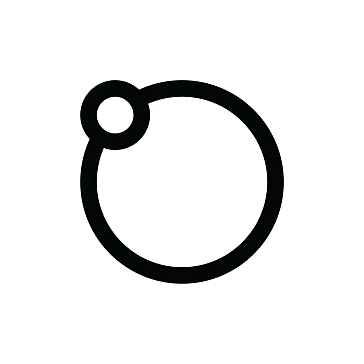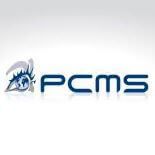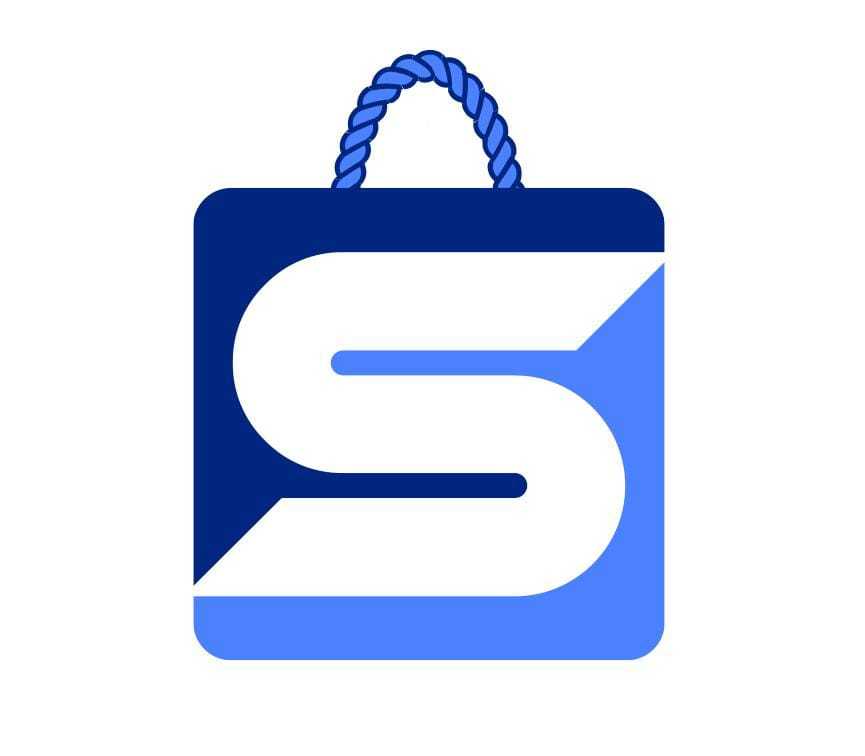Description

Foko Retail

Shiji Group
Comprehensive Overview: Foko Retail vs Shiji Group
Foko Retail and Shiji Group are two distinct entities within the retail and hospitality technology markets. Let's provide a comprehensive overview of each.
Foko Retail
a) Primary Functions and Target Markets
- Primary Functions: Foko Retail is a platform designed to enhance retail operations through visual merchandising and retail execution. It provides tools that facilitate communication between head offices and retail locations, optimize store operations, and improve the visual appeal of retail outlets. Key features include photo sharing, task management, store auditing, and analytics.
- Target Markets: Foko Retail primarily targets retail brands, stores, and chains that are looking to improve their in-store execution and consistency across locations. It serves various sectors within retail, such as fashion, electronics, and consumer goods.
b) Market Share and User Base
- Market Share: Foko Retail occupies a niche segment of the retail technology market focused on visual merchandising and store execution. It isn't one of the largest platforms by market share due to its specialized offering, but it is known for its effectiveness in its niche.
- User Base: Its user base comprises retailers seeking to streamline and enhance their visual merchandising efforts. The platform is favored by brands wanting to maintain a consistent brand image across multiple stores.
c) Key Differentiating Factors
- Visual Merchandising Focus: Foko Retail’s main differentiator is its focus on visual merchandising, making it specifically appealing to retailers emphasizing aesthetic consistency and presentation.
- User-Friendly Interface: Known for a clean and intuitive interface, it facilitates easy communication between the field and headquarters.
- Customization and Flexibility: Offers a highly customizable platform that can adapt to the specific needs of different retail organizations.
Shiji Group
a) Primary Functions and Target Markets
- Primary Functions: Shiji Group is a larger entity offering technology solutions across the hotel, retail, food service, and entertainment industries. Their primary functions include providing point-of-sale systems, property management systems, supply chain management, and data analytics solutions.
- Target Markets: Shiji targets a global market with a wide range of solutions suitable for various sectors including hospitality, retail, and restaurants. It serves major hotel chains, retailers, and entertainment venues.
b) Market Share and User Base
- Market Share: Shiji Group holds a significant portion of the hospitality technology market and has a strong presence in the retail technology sector as well. Its comprehensive suite of products and services has allowed it to secure a substantial market share.
- User Base: Shiji's user base is extensive, encompassing major hotel brands, retail chains, and dining establishments due to its broad range of integrated solutions and global reach.
c) Key Differentiating Factors
- Comprehensive Solutions: Shiji differentiates itself with a wide range of products that can serve integrated needs across hospitality, retail, and food service sectors.
- Global Reach and Partnerships: With a global presence, Shiji has established partnerships with major industry players, enhancing its credibility and reach.
- Innovation and Integration: Known for innovation in technology and the ability to integrate solutions across various service areas, which appeals to clients looking for comprehensive technology ecosystems.
These two entities, while both within the retail technology sphere, serve different aspects and scales within their markets. Foko Retail’s specialization in visual merchandising contrasts with Shiji’s wide-ranging solutions for multiple industries.
Contact Info

Year founded :
Not Available
Not Available
Not Available
Canada
http://www.linkedin.com/company/foko-retail

Year founded :
1998
+65 6337 4543
Not Available
Singapore
http://www.linkedin.com/company/shijigroup
Feature Similarity Breakdown: Foko Retail, Shiji Group
Foko Retail and Shiji Group are companies that offer software solutions tailored for the retail and hospitality sectors, respectively. Each provides unique features pertinent to their target industries, but there can be some overlap. Let's break down the feature similarities and differences:
a) Core Features in Common
-
Inventory Management: Both Foko Retail and solutions from Shiji Group may offer some form of inventory tracking and management, which is crucial for retail operations and hospitality venues managing stock.
-
Analytics and Reporting: Both platforms likely provide analytics features allowing businesses to track performance metrics, review sales data, and optimize operations based on insights from these reports.
-
Mobile Access: Likely, both solutions offer mobile applications or mobile-optimized access, enabling on-the-go management and updates, which is crucial for dynamic environments like retail floors or hospitality sites.
-
Customer Management: While the specifics might differ, both platforms are expected to have features for managing customer information, loyalty programs, or feedback systems.
b) Comparison of User Interfaces
-
Usability:
- Foko Retail: Known for its user-friendly interface, Foko Retail focuses on simplicity and ease of use, optimizing for quick access to key functions necessary for retail operations.
- Shiji Group: Provides a more comprehensive set of features tailored to the hospitality industry, which might make its interface more complex but highly detailed for specific needs like hotel and restaurant management.
-
Design Aesthetics:
- Foko Retail: Generally opts for a sleek, modern interface with intuitive navigation aimed at retail personnel who may not have extensive tech backgrounds.
- Shiji Group: May utilize a professional, functional design that allows detailed configurations and in-depth navigation to cater to more complex hospitality management needs.
c) Unique Features
-
Foko Retail:
- Visual Merchandising Tools: Offers specialized features for visual merchandising, allowing retail managers to plan and communicate store layouts and displays effectively.
- Task Management: Capabilities specifically designed for task assignment and execution in retail environments.
-
Shiji Group:
- Hospitality-Specific Solutions: Offers features specifically for the hospitality sector, such as property management systems, food and beverage point-of-sale (POS), and reservation management.
- Global Reach and Integration: Integrations with other leading hospitality platforms and services, reflecting its global presence and focus on comprehensive hospitality solutions.
Conclusion: While both Foko Retail and Shiji Group share some core functionalities essential for their business sectors, they distinguish themselves with unique features tailored to the specific needs of retail versus hospitality. Understanding these differences is crucial for businesses considering these solutions based on industry requirements.
Features

Not Available

Not Available
Best Fit Use Cases: Foko Retail, Shiji Group
Foko Retail and Shiji Group serve different needs within the retail and hospitality industries, and each has its own set of strengths tailored to specific business requirements and scenarios.
a) Foko Retail Use Cases
Types of Businesses or Projects:
- Retail Chains: Foko Retail is ideally suited for businesses with multiple retail locations that require consistent communication and operations management across different stores. It's particularly beneficial for fashion, electronics, and grocery chains.
- Visual Merchandising Projects: Retailers needing to ensure uniformity in visual merchandising across locations can use Foko Retail to implement and monitor merchandising standards.
- Remote Workforce Management: Companies that need to coordinate activities and communicate with field teams or remote workers find Foko Retail useful due to its mobile-first communication platform.
Best Fit Scenarios:
- Centralized operations needing streamlined communication across numerous retail locations.
- Projects where brand consistency in display and customer experience is crucial.
- Situations needing quick feedback loops from in-store employees to management.
b) Shiji Group Use Cases
Types of Businesses or Projects:
- Hospitality and Leisure Industries: Shiji Group excels in providing technology solutions to hotels, restaurants, and entertainment venues. It is highly suitable for large hotel chains, independent hotels, casinos, and theme parks.
- Restaurant Management: From small eateries to large franchises, Shiji offers comprehensive Point of Sale (POS) solutions and customer management systems.
- Integrated Property Management Systems: Businesses requiring complex property and reservation management systems can benefit from Shiji's wide-ranging software solutions.
Best Fit Scenarios:
- Large-scale hotel chains requiring integrated solutions for property management, reservations, and guest engagement.
- Restaurants and food services needing robust POS systems integrated with inventory and customer loyalty solutions.
- Operations that demand seamless integration across various technology platforms in the hospitality sector.
d) Catering to Different Industry Verticals or Company Sizes
Foko Retail:
- Industry Verticals: Primarily focused on retail, particularly beneficial for sectors like fashion, consumer electronics, groceries, and other multi-location retail operations.
- Company Size: Scales well from medium to large enterprises, especially those with multiple locations needing centralized oversight and communication.
Shiji Group:
- Industry Verticals: Primarily serves the hospitality and food service industries. It is versatile in addressing needs across hotels, restaurants, and leisure businesses.
- Company Size: Offers scalable solutions suitable for both small independent operations and large multinational chains, providing flexibility and integration capabilities for various business sizes.
Both companies offer niche solutions, and the best fit depends on the specific operational requirements and industry focus of the business.
Pricing

Pricing Not Available

Pricing Not Available
Metrics History
Metrics History
Comparing teamSize across companies
Conclusion & Final Verdict: Foko Retail vs Shiji Group
To provide a conclusion and final verdict on Foko Retail and Shiji Group without access to specific product details, let's consider the general aspects usually evaluated in such comparisons.
Conclusion and Final Verdict:
a) Best Overall Value: Determining which product offers the best overall value largely depends on the specific needs and priorities of the potential user. If the primary focus is on retail collaboration and communications, Foko Retail might provide better value, given its specialized features and user focus. Alternatively, if the goal is broader hospitality management or retail solutions with a global presence, Shiji Group's offerings might be more appropriate.
b) Pros and Cons:
Foko Retail:
-
Pros:
- Specializes in retail execution, providing targeted solutions for communication and collaboration within retail environments.
- User-friendly interface designed specifically for retail teams.
- Real-time updates and streamlined reporting features cater to the needs of retail staff on the ground.
-
Cons:
- May not offer the same breadth of features available in more comprehensive management platforms.
- Potential limitations in scalability for larger, more diverse organizations needing integrated solutions.
Shiji Group:
-
Pros:
- Offers a broad suite of solutions, catering to hospitality, food service, retail, and entertainment sectors.
- Global reach and experience with large enterprises provide robust integration and scalability.
- Continuous innovation and development due to extensive industry presence.
-
Cons:
- May present a steep learning curve for users due to the complexity and breadth of products offered.
- Smaller, niche users might find Shiji's offerings more than they need, potentially leading to under-utilization.
c) Recommendations:
-
For Users Focused on Retail Operations: Consider Foko Retail if your primary goal is to enhance team communication, task management, and reporting in a retail environment. Foko's focus on retail makes it ideal for businesses looking to improve in-store execution and collaboration.
-
For Users Seeking Comprehensive Solutions Across Multiple Sectors: Shiji Group would be better suited for those requiring a wide range of integrated services across hospitality and retail sectors. Its global infrastructure and expansive product offerings make it ideal for larger enterprises needing comprehensive, scalable solutions.
Ultimately, the choice between Foko Retail and Shiji Group should be guided by the specific needs of the business, considering both the scale of operations and the focus on industry-specific functionalities. Users are advised to conduct a detailed analysis of their requirements and possibly engage in trial phases to better understand which product aligns best with their strategic objectives.
Add to compare
Add similar companies




